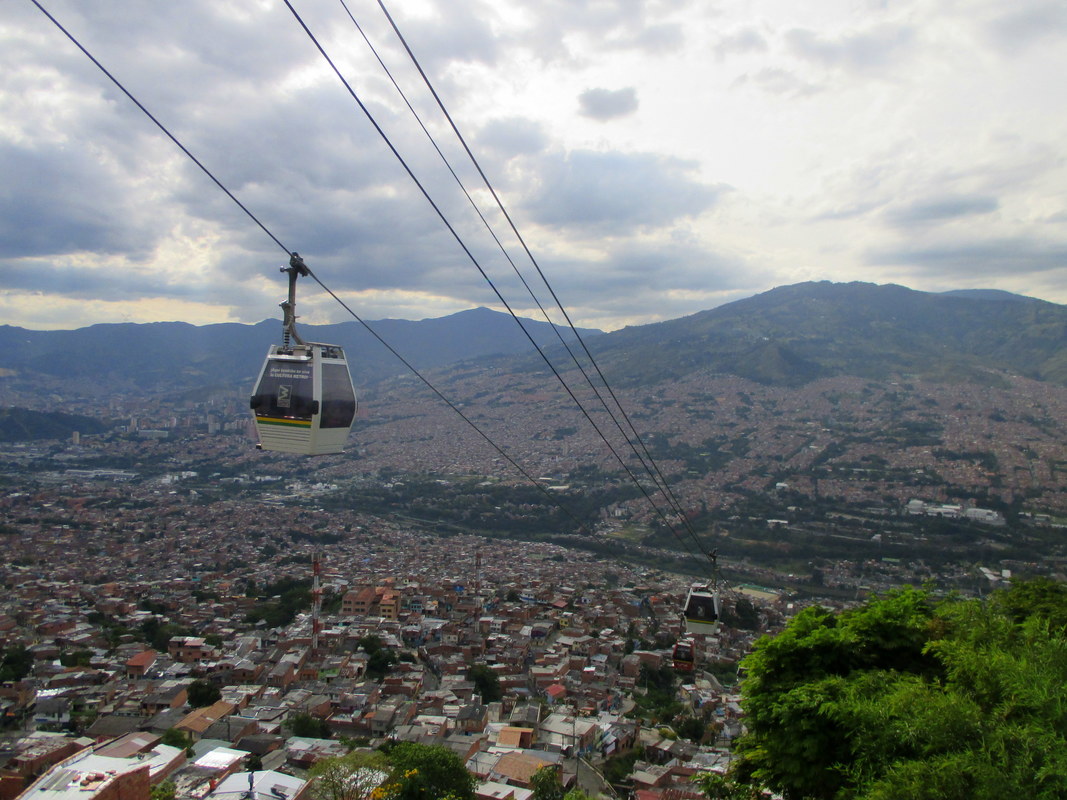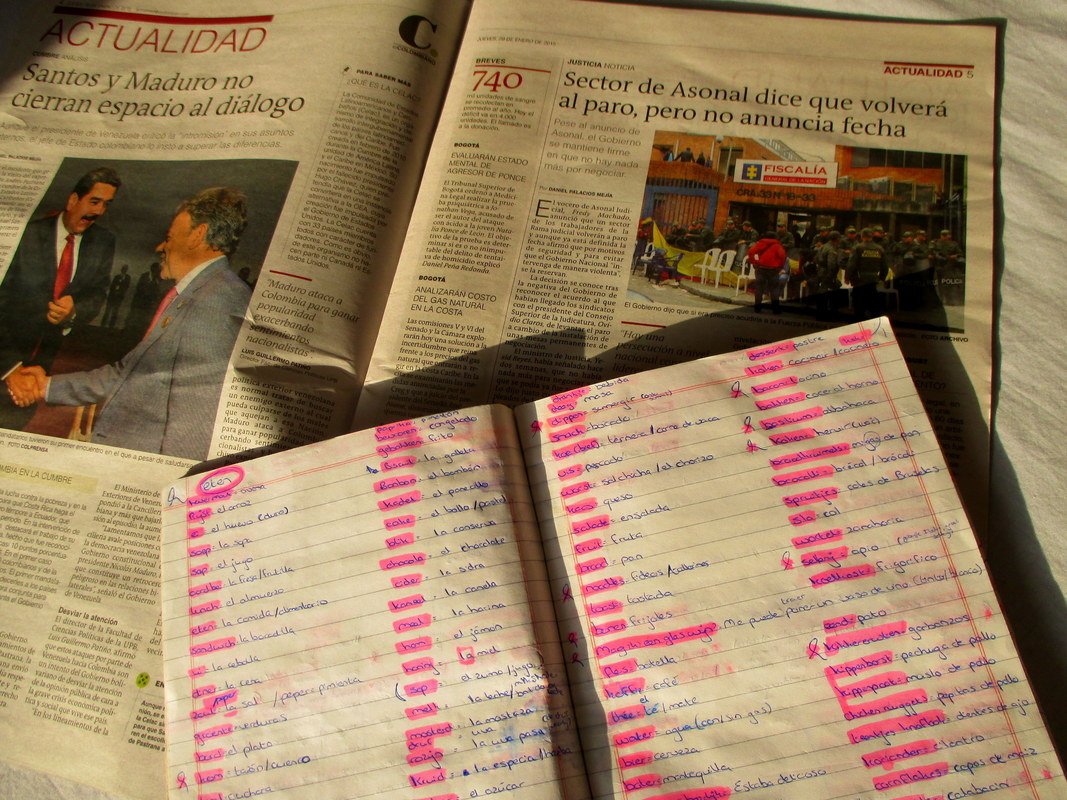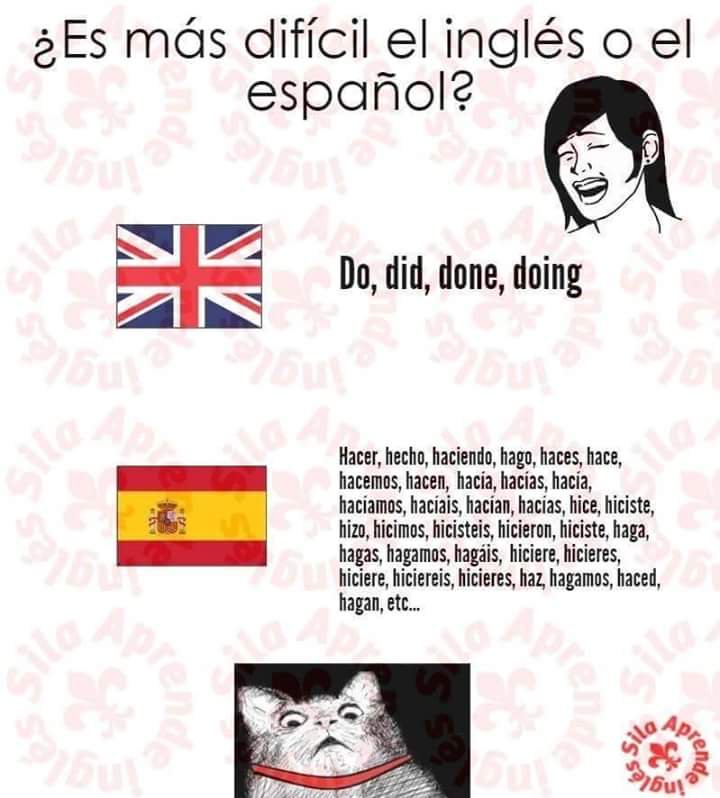Medellín Part I / Jardín
For budget tips & compact place-specific travel info... Download my FREE Budget Fact Sheets. You're welcome.
| Download Steph's MEDELLIN Quick Budget Fact Sheet | |
| File Size: | 599 kb |
| File Type: | |
Part I: Week 1&2
¡Vamos a Medellín!
I am a girl on a mission this time, as I want to become fluent in Spanish here. In a month.
Without challenging ambitions nothing will be achieved, so why not set a Guinness record while I’m at it? It will be my 8th language and as I already know French, some Italian and (most important) Latin I am sure I can pull it off. Confidence is key, so if I sound obnoxiously arrogant: Just let me babble into the nothingness, I’m just pushing myself to (or over) the limit with this pep talk.
¡Vamos a Medellín!
I am a girl on a mission this time, as I want to become fluent in Spanish here. In a month.
Without challenging ambitions nothing will be achieved, so why not set a Guinness record while I’m at it? It will be my 8th language and as I already know French, some Italian and (most important) Latin I am sure I can pull it off. Confidence is key, so if I sound obnoxiously arrogant: Just let me babble into the nothingness, I’m just pushing myself to (or over) the limit with this pep talk.
After a greasy breakfast of pastel de queso hollandès (I miss my country only in terms of food) I started with my first step on this mission: finding a quiet apartment in which I could lock myself up to study. Being from the female kind is great, as I only had to put a few messages on some Medellin-Facebook-pages to get over 30 replies within a few hours. Some of them over aged men who proposed to not only share the apartment, but as well the bed… oh, and I planned to invite a guy over in the weekend? Na-ah, not possible, hands above the blanket for this new tenant. Hm, thanks but no thanks.
There were a bunch of okay-looking ones though and my first day in Medellín I ended my hardcore apartment hunt by signing a lease for a big bright room in the posh Poblado-area. Usually I am more into the bohemian folksy areas where subcultures flourish and stuff, but as I’d like to be able to walk around by myself after sunset in Pablo Escobar’s former city I thought the rich gringo-area might be the best bet.
There were a bunch of okay-looking ones though and my first day in Medellín I ended my hardcore apartment hunt by signing a lease for a big bright room in the posh Poblado-area. Usually I am more into the bohemian folksy areas where subcultures flourish and stuff, but as I’d like to be able to walk around by myself after sunset in Pablo Escobar’s former city I thought the rich gringo-area might be the best bet.
Next: A language school. As my past proofed I am quite fond of universities, I pointed my arrows first at two of the many universities that are located in this city: EAFIT and UPB. At EAFIT I was greeted with an arrogant smile and a girl smirking with judging eyes “So, you are in South America but you don’t know Spanish?” (of course said in Spanish, which I understood). I answered (in Spanish) that this was indeed the case which is why I’m here to learn, and subsequently enquired how many languages SHE spoke (only 1, ‘nuff said). Good, no EAFIT for me, I won’t ever accept this attitude from anyone.
So I took the bus to UPB in the Laureles-area and arrived at an incredible campus. It reminded me of my old university and I immediately felt at home… However, it took me over an hour to get there, one-way, and although the teacher was amazing and overly passionate I didn’t want to lose two hours per day of precious study-time. So… the private (and rather expensive) Toucan Spanish School in Poblado, 15 minutes walking from my new home, it was. All settled.
After this hard work I thought I deserved a laidback weekend… so I installed myself in my apartment and grabbed the hand of someone beautiful to explore some of the local nightlife around Parque LLeras.
So I took the bus to UPB in the Laureles-area and arrived at an incredible campus. It reminded me of my old university and I immediately felt at home… However, it took me over an hour to get there, one-way, and although the teacher was amazing and overly passionate I didn’t want to lose two hours per day of precious study-time. So… the private (and rather expensive) Toucan Spanish School in Poblado, 15 minutes walking from my new home, it was. All settled.
After this hard work I thought I deserved a laidback weekend… so I installed myself in my apartment and grabbed the hand of someone beautiful to explore some of the local nightlife around Parque LLeras.
Monday! De-stressed I merrily put on my backpack and hopped to school. Oh man, I love school, I almost forgot about that. I was put in the beginners’ class, but after 15 minutes moved to the next level and after the coffee break moved yet another level up. You see, there’s something inherently wrong with this schooling system: They form classes based on prior knowledge, not on IQ or pace of learning. I have to learn the language from scratch as I don’t know any Spanish grammar or how to write stuff. Everything I know I picked up purely phonetically while travelling. But just show the theory to me once and I get the point, I don’t need to practice for 2 hours afterwards. But still: I have to have it explained to me first, you can’t put me in an advanced class and teach me the imperativos when I don’t even know the verbs in present tense yet.
So, in the intermediate class where I ended up I was extremely bored by the slow pace of checking off subjects that were quite obvious to me. Therefore I transformed into that atrocious girl that screamed the answers to all questions asked in class first and demanded extra homework afterwards. At home I searched the internet for extra material to expand my grammar skills and vocabulary. Nerd-approved I finished the week with an A+ in my final test and moved a level up. I wonder why all my classmates hated me. I couldn’t even stand myself at one point in time. Therefore I decided I should do everyone a favour and take private classes the week after: autism-mode on.
So, in the intermediate class where I ended up I was extremely bored by the slow pace of checking off subjects that were quite obvious to me. Therefore I transformed into that atrocious girl that screamed the answers to all questions asked in class first and demanded extra homework afterwards. At home I searched the internet for extra material to expand my grammar skills and vocabulary. Nerd-approved I finished the week with an A+ in my final test and moved a level up. I wonder why all my classmates hated me. I couldn’t even stand myself at one point in time. Therefore I decided I should do everyone a favour and take private classes the week after: autism-mode on.
Because I treated that thing called ‘a social life’ as some insignificant abstract object impossible to implement in my geek-lifestyle, I looked forward to living up the weekend again. Although I hadn’t yet seen anything else but my neighbourhood in Medellín, me and my subject of dating decided to go for a weekend trip to Jardín, a village a bit further south. Right. This is Colombia though, and ‘a bit further south’ can be defined as 3 hours + 1,5 hours due to some accidents, which are standard in the local reckless traffic-insanity. You can go from Amsterdam through Belgium to Paris in the same time. Or reach Denmark from Holland via Germany. Was it worth it? I guess so, yes.
The square was ridiculously sugar-coated picturesque with its colourful hand-painted terraces and the place seemed to be invaded by a dense population of retired old men all wearing the same sombreros.
The square was ridiculously sugar-coated picturesque with its colourful hand-painted terraces and the place seemed to be invaded by a dense population of retired old men all wearing the same sombreros.
But as my Triposo travel-app stated that the hiking possibilities in the surroundings were ‘most pleasurable’, we first of all decided to hike the shit out of this place.
Imagine peaceful sandy paths through nature, banana trees, bamboo and now and then a gentle interruption from a brightly coloured hummingbird or butterfly… Ah, Colombia! Te quiero!
It’s like everything Center Parcs artificially built into their bungalow parks, but then not resurrected out of plastic [Northern Europeans will understand]. The sporty hiking was easily forgotten once the opportunity of some skinny-dipping in a quiet river presented itself, after which we fell asleep in the sun on the riverside.
Imagine peaceful sandy paths through nature, banana trees, bamboo and now and then a gentle interruption from a brightly coloured hummingbird or butterfly… Ah, Colombia! Te quiero!
It’s like everything Center Parcs artificially built into their bungalow parks, but then not resurrected out of plastic [Northern Europeans will understand]. The sporty hiking was easily forgotten once the opportunity of some skinny-dipping in a quiet river presented itself, after which we fell asleep in the sun on the riverside.
Back to work. Determined to reach my almost inhuman goal of learning a complete language in one month I pumped up the pace in the second week. I decided to complete a four week programme focussed on the past tenses in *ahum* 1 week. Yes, I am a robot. But I'll be damned if I cannot pull it off.
Well, good for me, my teacher didn’t fuck around, he was determined to teach me 2 of the 4pasados (past tenses), the preterito indefinido and the imperfecto, in just 1 day. I thought this was impossible, but 24 hours later I secretly learned all 4 of them, including the perfecto and plusquamperfecto. And a 50-page grammar book. And 15 pages of word-lists I found on the internet, as I want to expand my vocabulary as well. Yes, it was good to avoid human contact, bullies would have found me for sure. The rest of the week I was dedicated to practicing all these different forms and, especially, the 1001 exceptions.
Well, good for me, my teacher didn’t fuck around, he was determined to teach me 2 of the 4pasados (past tenses), the preterito indefinido and the imperfecto, in just 1 day. I thought this was impossible, but 24 hours later I secretly learned all 4 of them, including the perfecto and plusquamperfecto. And a 50-page grammar book. And 15 pages of word-lists I found on the internet, as I want to expand my vocabulary as well. Yes, it was good to avoid human contact, bullies would have found me for sure. The rest of the week I was dedicated to practicing all these different forms and, especially, the 1001 exceptions.
First observation: Spanish is a pain in the ass.
To illustrate that: You know the indefenido, one of the 4 past tenses, has 3 different forms? Verbs ending in –ar (like amar) will be transformed with the root (am) + -é (I), -aste (you), - ó (he), - amos (we), - aron (they). The verbs with –ir and –er (like vivir and comer) are transformed with the root (viv & com) + - í, -iste, -ío, -imos and –ieron. Can you follow it? Good, because this is the easy part.
This past tense has many irregular forms, and then not only the root changes, but there are different ends as well. The roots from irregulars like saber, tener, traer and poder, to name a few, all change in different ways: sup-, tuv- ,traj- and pud-. There are hundreds of them. These verbs don’t get the ends you expect based on their –er, -ir or –ar endings… no that would be too logical. You have the endings specific for the irregulares in indefinido, which combines the shit: -e, -iste, -o, -imos, -ieron.
And then… of course… YOU HAVE IRREGELAR FORMS IN THE IRREGULAR FORMS, you’ve got to be kidding me. For example, traducir has a different irregular me & they-form: traduci OR traduje/ tradujiste / tradujo / tradujimos / tradujeron, but vestirse has a different he & they form: vestí / vestiste / vistió / vestimos / vistieron. Oh and don’t forget it’s a REFLEXIVO, so it will be yo me vestí / tu te vestiste / él se vistió / nosotros nos vestimos / ellos se vistieron. Which would be different again for verbs as gustar and the like, as there the form of the verb is not determined by the object (me/you/he/we/they) but by the direct object it refers to, and will form 1 word with the indirect object me/te/lo/la/les/los/las (same same but different).
To illustrate that: You know the indefenido, one of the 4 past tenses, has 3 different forms? Verbs ending in –ar (like amar) will be transformed with the root (am) + -é (I), -aste (you), - ó (he), - amos (we), - aron (they). The verbs with –ir and –er (like vivir and comer) are transformed with the root (viv & com) + - í, -iste, -ío, -imos and –ieron. Can you follow it? Good, because this is the easy part.
This past tense has many irregular forms, and then not only the root changes, but there are different ends as well. The roots from irregulars like saber, tener, traer and poder, to name a few, all change in different ways: sup-, tuv- ,traj- and pud-. There are hundreds of them. These verbs don’t get the ends you expect based on their –er, -ir or –ar endings… no that would be too logical. You have the endings specific for the irregulares in indefinido, which combines the shit: -e, -iste, -o, -imos, -ieron.
And then… of course… YOU HAVE IRREGELAR FORMS IN THE IRREGULAR FORMS, you’ve got to be kidding me. For example, traducir has a different irregular me & they-form: traduci OR traduje/ tradujiste / tradujo / tradujimos / tradujeron, but vestirse has a different he & they form: vestí / vestiste / vistió / vestimos / vistieron. Oh and don’t forget it’s a REFLEXIVO, so it will be yo me vestí / tu te vestiste / él se vistió / nosotros nos vestimos / ellos se vistieron. Which would be different again for verbs as gustar and the like, as there the form of the verb is not determined by the object (me/you/he/we/they) but by the direct object it refers to, and will form 1 word with the indirect object me/te/lo/la/les/los/las (same same but different).
But don’t forget not only Spain and South America, but also every different South American country by itself, has different grammatical habits, expressions, accents and slang. Got it? No? I don’t blame ya. On a daily basis my Spanish teacher, a native Spanish speaker who made this language his work and specialty, is confused and has to look up stuff based on my sharp questions (and he was wrong more than once!). I got the basis down, but I have a long way to go in getting all these verbs right in all the different situations. Oh and obviously all of this is taught in Spanish jargon, as hardly anyone speaks proper English in this school… which is not even my mother tongue; that is Dutch, people tend to forget that.
What the hell did I get myself into?
In something highly satisfying for sure: I DID pass my exam after only 1 week and moved to the advanced class, self-high-five!
And this is only the beginning... Read more about my adventures in the wild wild west of Spanish idioma: Medellín Part II.
What the hell did I get myself into?
In something highly satisfying for sure: I DID pass my exam after only 1 week and moved to the advanced class, self-high-five!
And this is only the beginning... Read more about my adventures in the wild wild west of Spanish idioma: Medellín Part II.
For my fellow Spanish-knights who struggle with the 4 past tenses… I figured out some system, want it?
Okay. The easiest ones are the Perfecto and Plusquamperfecto, exactly the same as the Latin Perfectum and Plusquamperfectum. The Perfectum means something you did in the past which is still related to now (words as ya/hoy/todavía/este mes semana dia blabla) and can be translated as ‘I have talked/helped/made etc.’ It’s therefore as simple as it sounds: having = haber (he/has/ha/hemos/han) + Participio, which is the participle. The participle is formed as root+ -ido (verbs ending on –er/-ir) or -ado (verbs ending on –ar). Of course there are a shitload of irregular participios, the Spanish love to make things unnecessarily difficult, I recommend to Google those. The Plusquamperfecto is exactly the same, but it happened in the past before something else happened in the past and is therefore formed with the Imperfecto (past) of haber: había/habías/había/habíamos/habían + Participio. It means ‘we had talked /helped/made etc.”
Huh, Imperfecto you said? Yeah, that one is quite easy too. It’s like the Latin Imperfectum or English ‘past continuous’, referring to (active) situations that didn’t finish yet, comparisons or normalities/reasons (which is different from English, this would be the ‘past simple’). Mientras, during, is a word that refers to it for example. Verbs with –ar are transformed into root+ -aba/-abas/-aba/abamos/abaron, and verbs with –er-/-ir are transformed into –ía/-ías/-ía/-íamos/-ían. There are only 3 irregular forms: Ser (era/eras/era/éramos/eran), ir (iba/ibas/iba/íbamos/iban) and ver (veía/veías/veía/veíamos/veían). Easy peasy.
But now shit hits the fan: the Indefinido. Something that happened in the past and is not related to ‘the now’: ayer/anteayer/anoche/una vez/ la semana pasada/mes pasada etc, we are in a different timezone now. It’s the most common and the regular verbs are transformed into root+ -é/-aste/-ó/-amos/-aron (verbs ending with –ar) or as –í/-iste/-ió/-imos/-ieron (verbs ending on –ir & -er). So far so good, but then the irregulars come in… and now things get messed up, as there are normal irregulars where the root changes and the end transforms into into –e/-iste/-o/-imos/-ieron (just slightly different from regular, but enough to fuck with your head), BUT there are also irregulars in the irregulars.
Spain, you suck.
I discovered 7 forms of irregular transformations in a way I can remember it (most of the times):
And then you have some asshole-verbs that are a combination of it all, like morir and dar. But screw them, just talk as fast as the locals and no one will notice you said it wrong.
Photo credits: 1 - 2
Okay. The easiest ones are the Perfecto and Plusquamperfecto, exactly the same as the Latin Perfectum and Plusquamperfectum. The Perfectum means something you did in the past which is still related to now (words as ya/hoy/todavía/este mes semana dia blabla) and can be translated as ‘I have talked/helped/made etc.’ It’s therefore as simple as it sounds: having = haber (he/has/ha/hemos/han) + Participio, which is the participle. The participle is formed as root+ -ido (verbs ending on –er/-ir) or -ado (verbs ending on –ar). Of course there are a shitload of irregular participios, the Spanish love to make things unnecessarily difficult, I recommend to Google those. The Plusquamperfecto is exactly the same, but it happened in the past before something else happened in the past and is therefore formed with the Imperfecto (past) of haber: había/habías/había/habíamos/habían + Participio. It means ‘we had talked /helped/made etc.”
Huh, Imperfecto you said? Yeah, that one is quite easy too. It’s like the Latin Imperfectum or English ‘past continuous’, referring to (active) situations that didn’t finish yet, comparisons or normalities/reasons (which is different from English, this would be the ‘past simple’). Mientras, during, is a word that refers to it for example. Verbs with –ar are transformed into root+ -aba/-abas/-aba/abamos/abaron, and verbs with –er-/-ir are transformed into –ía/-ías/-ía/-íamos/-ían. There are only 3 irregular forms: Ser (era/eras/era/éramos/eran), ir (iba/ibas/iba/íbamos/iban) and ver (veía/veías/veía/veíamos/veían). Easy peasy.
But now shit hits the fan: the Indefinido. Something that happened in the past and is not related to ‘the now’: ayer/anteayer/anoche/una vez/ la semana pasada/mes pasada etc, we are in a different timezone now. It’s the most common and the regular verbs are transformed into root+ -é/-aste/-ó/-amos/-aron (verbs ending with –ar) or as –í/-iste/-ió/-imos/-ieron (verbs ending on –ir & -er). So far so good, but then the irregulars come in… and now things get messed up, as there are normal irregulars where the root changes and the end transforms into into –e/-iste/-o/-imos/-ieron (just slightly different from regular, but enough to fuck with your head), BUT there are also irregulars in the irregulars.
Spain, you suck.
I discovered 7 forms of irregular transformations in a way I can remember it (most of the times):
- -ir: root of él/ellos changes, endings als –ir regular: dormir/pedir/vestir/reír/sentir etc.
- -er/-cir: -j- implemented in root, endings as –ir/-er regular except of ellos (-eron instead of –ieron): conducir/traducir/decir/producir/traer etc.
- -zar: completely regular as an –ar verb, except of yo: -é becomes –cé: comenzar/empezar etc.
- -gar: completely regular as an –ar verb, except of yo: -é becomes –ué: pagar/jugar etc.
- -car: completely regular as an –ar verb, except of yo: -é becomes –qué: tocar/buscar/indicar etc.
- -y- replaces –i- as there would be 3 vowels in a row in él/ellos and this is weird phonetically. The rest is regular: leer, distribuir etc.
- The serious irregular ones: root is irregular in every form, endings irregular –e/-iste/-o/-imos/ieron. Like venir/tener/poner/poder etc.
And then you have some asshole-verbs that are a combination of it all, like morir and dar. But screw them, just talk as fast as the locals and no one will notice you said it wrong.
Photo credits: 1 - 2
In order to support the travelers’ community, I spend many hours per week to adequately document all information and advices for prospective visitors, accompanied by a (hopefully) entertaining insight into my personal observations and experiences. This service is and will remain free. However, if you voluntarily want to make a contribution and support my travels and thus the creation of new stories and information supply, here is the button you’re looking for:
Related:
- The sequel: Medellín Part II
- Go to the Colombia Page for more blogs!
- Check out Budget Bucket List's FAVORITE HIKING DESTINATIONS worldwide!
- Want to learn Spanish in Guatemala instead? Check No Back Home's story!
- Learning the Kriol language in Belize
- Outdoors lover? Head down to Ecuador and don't miss Banos
- Getting lost in the undiscovered forests of Brazil: Itatiaia National Park
- Camping and trekking in southern Patagonia: Torres del Paine, Chile
- A 3-day trek through the remotest parts of Bolivia
- Off the beaten path in Peru: trekking in the northern Andes
- The green treasures of Costa Rica: Monteverde, Tapantí National Park & Tortuguero National Park
- Visiting the national parks of Belize: Belmopan & Sarteneja
- Hiking the Highlands: Glencoe (West Highland Way) and Isle of Skye, Scotland
- Other places where I (shortly) lived: Buenos Aires [Argentina], Florianopolis [Brazil], San Jose [Costa Rica], Roatán [Honduras], Granada [Nicaragua], Boquete & Isla San Cristobal [Panama], Port Waikato [New Zealand], Haarlem [The Netherlands]
- Lush, beautiful and with the bluest waters: Northland, New Zealand
- 13 Strange Observations of South Korea
- Discover Romania's enjoyable cities: Bucharest, Brasov and Cluj Napoca
- Budget Bucket List hitchhike trip to... Kosovo!
- Guest Blog 'Kosovo Girl Travels': Travel tips and stories from Kosovo's first and only travelblogger!
- The sequel: Medellín Part II
- Go to the Colombia Page for more blogs!
- Check out Budget Bucket List's FAVORITE HIKING DESTINATIONS worldwide!
- Want to learn Spanish in Guatemala instead? Check No Back Home's story!
- Learning the Kriol language in Belize
- Outdoors lover? Head down to Ecuador and don't miss Banos
- Getting lost in the undiscovered forests of Brazil: Itatiaia National Park
- Camping and trekking in southern Patagonia: Torres del Paine, Chile
- A 3-day trek through the remotest parts of Bolivia
- Off the beaten path in Peru: trekking in the northern Andes
- The green treasures of Costa Rica: Monteverde, Tapantí National Park & Tortuguero National Park
- Visiting the national parks of Belize: Belmopan & Sarteneja
- Hiking the Highlands: Glencoe (West Highland Way) and Isle of Skye, Scotland
- Other places where I (shortly) lived: Buenos Aires [Argentina], Florianopolis [Brazil], San Jose [Costa Rica], Roatán [Honduras], Granada [Nicaragua], Boquete & Isla San Cristobal [Panama], Port Waikato [New Zealand], Haarlem [The Netherlands]
- Lush, beautiful and with the bluest waters: Northland, New Zealand
- 13 Strange Observations of South Korea
- Discover Romania's enjoyable cities: Bucharest, Brasov and Cluj Napoca
- Budget Bucket List hitchhike trip to... Kosovo!
- Guest Blog 'Kosovo Girl Travels': Travel tips and stories from Kosovo's first and only travelblogger!






